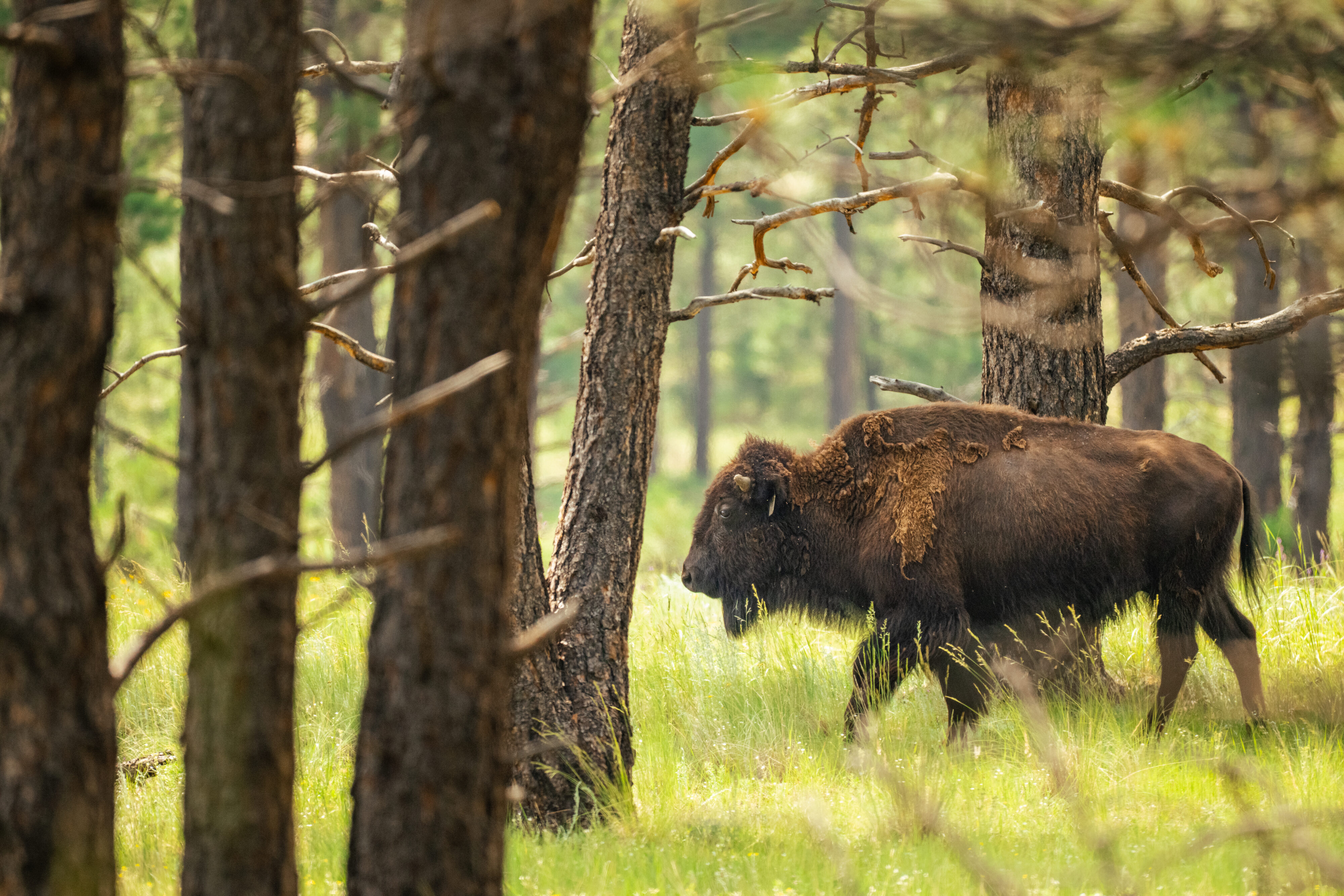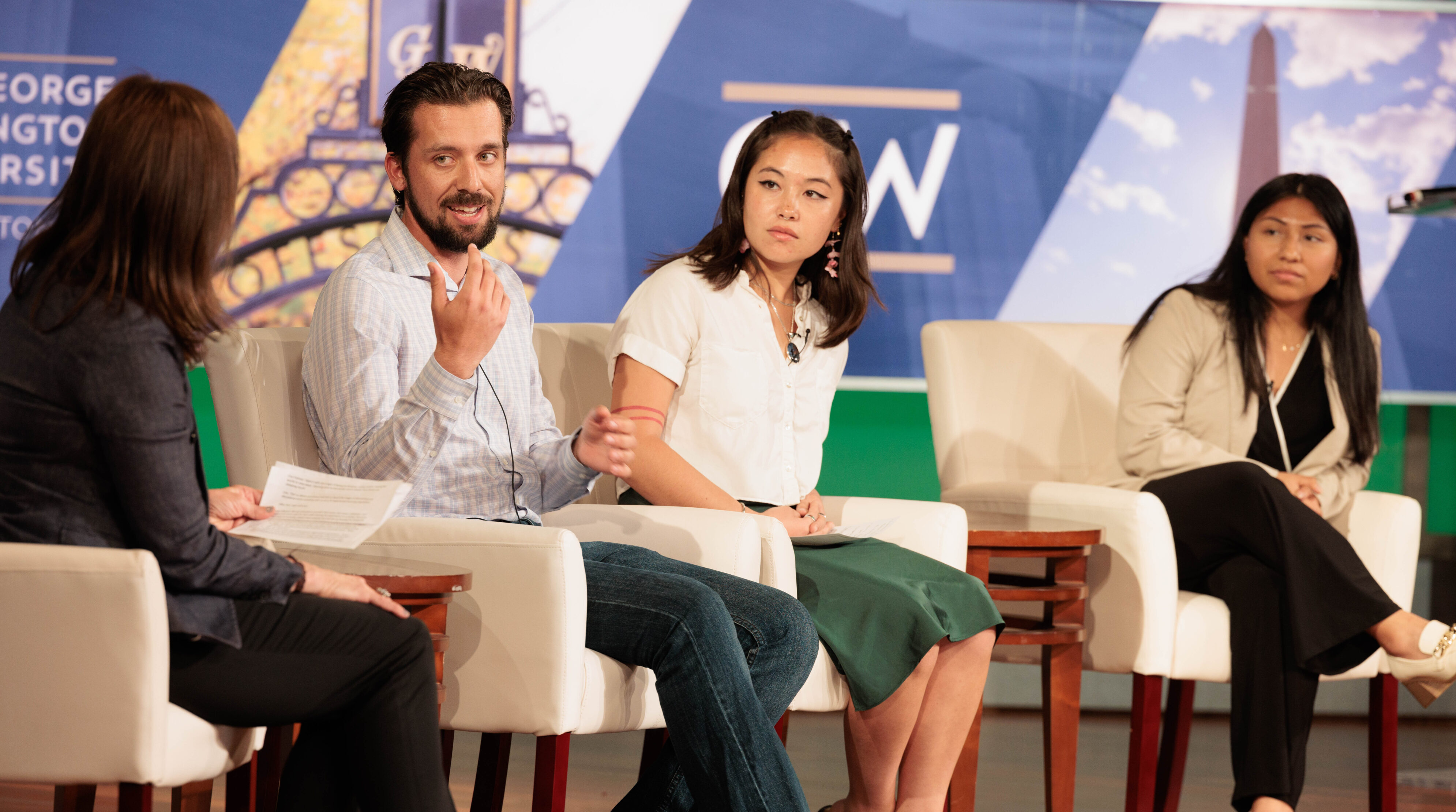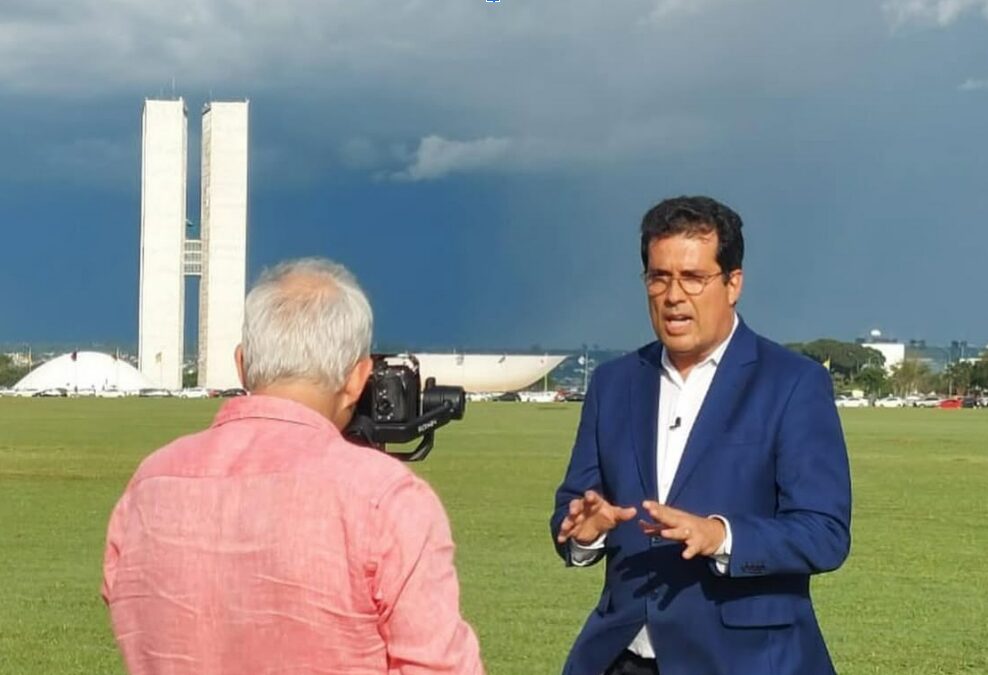
Can an army of one save a half million?

It’s a Saturday morning and I’m on the roof of George Washington University’s law school. From a distance, the girl in the white suit, armed with gloves and a veil, resembles a “Star Wars” stormtrooper. She lights a smoker and I watch as the smoke billows.
Slowly, the girl takes out a wooden frame covered in tightly packed hexagons. The frame buzzes with activity.
Gabby Discafani is the senior beekeeper for GWU’s Honey Bee Lab and Apiary. She leads a research team studying colony-collapse disorder (CCD).
The disorder is a deadly condition that causes honeybee colonies to stop functioning. It’s claimed more than 40 percent of the world’s honeybee population.
Although the cause of CCD remains unclear, Discafani explained that the main factors boil down to the four P’s: pathogens, parasites, pesticides and poor nutrition.
Through GW’s apiary, Discafani is researching how CCD affects bees in urban and rural environments. One would think she is a biology major, but she’s actually studying classics.
Discafani started beekeeping two years ago when she noticed the large amount of bee’s on GW’s campus. She learned about the apiary, thought it was a worthwhile cause and decided to get involved.
I was inspired by Discafani’s decision to volunteer with the urban apiary. Her efforts as an urban beekeeper are just part of the solution to a larger problem: food security and sustainability.
The plight of the honeybee is cause for concern. Honeybees pollinate one third of everything we eat.
If bees go extinct, our food supply will diminish by over 70 percent.
The current outlook is grim.
In late September 2016, the U.S. Fish and Wildlife Service added bees to the endangered-species list for the first time.
We need an army of urban beekeepers to help take the sting out of the declining bee population. Although Discafani may not be a stormtrooper, she remains optimistic as she fights a battle whose outcome will impact more than just the bee population.
I realized the importance of Discafani’s work when I donned the white suit and joined her army that afternoon. Watching a half million of the world’s hardest workers, literally busy bees, opened my eyes to the importance of these endangered insects.
Take a look around in this 360 video to see what I saw and you’ll never swat at another bee again.























